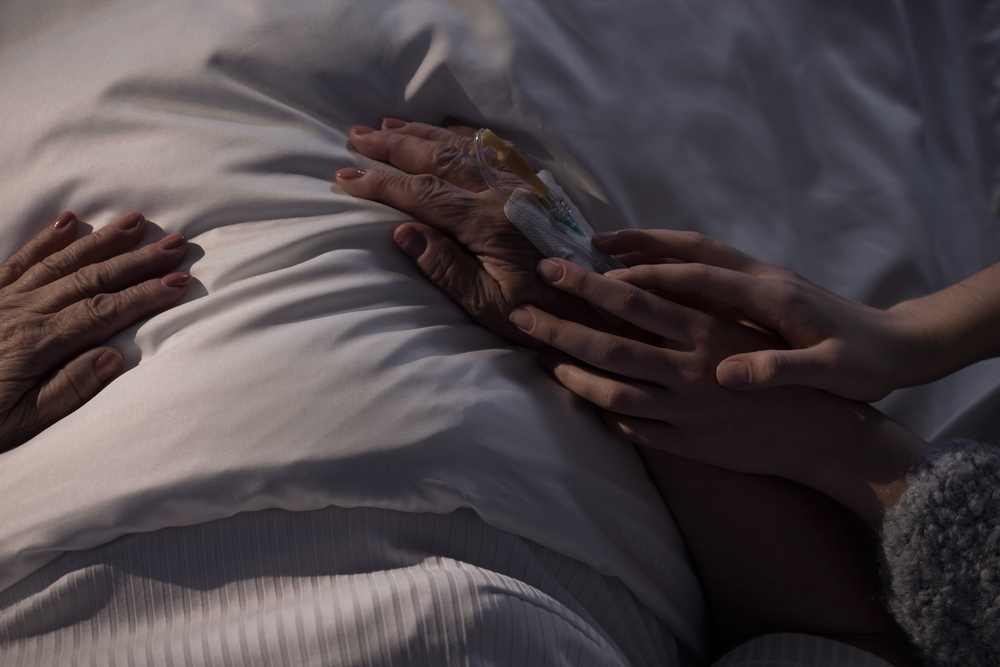


There's little more than a week left for islanders to share their views on proposals to introduce assisted dying in Jersey. Express explores what's being proposed...
Assisted dying is defined as where a person with a terminal illness, or experiencing unbearable physical suffering, chooses to end their life with the help of a medical professional.
This practise is legal to varying degrees in Australia, New Zealand, Belgium, the Netherlands, Canada and 11 States in the US.
It is currently illegal in the UK, and in November 2021, Jersey's States Assembly became the first parliament in the British Isles to decide that assisted dying should be permitted 'in principle'.
Under the proposals for eligibility criteria, a person must be aged 18 or over and must have lived in Jersey for the last 12 months - a measure put in place to prevent so-called 'death tourism'.

Pictured: The States Assembly became the first parliament in the British Isles to decide 'in principle' that assisted dying should be permitted 'in principle'.
Furthermore, the person must have “a voluntary, clear, settled and informed wish to end their own life”, meaning they must be acting free of coercion, and must possess the capacity to make the decision to end their own life.
Crucially, the person must have been diagnosed with an 'eligible medical condition'. Those with an eligible condition can take two routes.
A person is eligible under route 1 if they have a terminal illness that is expected to cause death within six to 12 months, which is causing them "unbearable suffering".

Pictured: A person with an incurable physical medical condition that is causing unbearable suffering that cannot be alleviated is eligible for assisted dying under current proposals.
A person is eligible under route 2 if the person is diagnosed with an "incurable physical medical condition" that is causing unbearable suffering which "cannot be alleviated in a manner the person deems tolerable".
The term "physical medical condition" has been chosen deliberately so as not to include mental illnesses.
In Australia, New Zealand and the US, only those people under route 1 would be considered eligible for assisted dying.
Assisted dying would be provided in Jersey by means of an 'Assisted Dying Service', which will be delivered by the Health and Community Services Department.
The aim of this service is to provide information about assisted dying, support patients and loved ones in navigating the process and to coordinate the professionals engaged in the assisted dying process. The assisted dying service will be provided free of charge to anyone who meets all eligibility criteria.

Pictured: The Assisted Dying Service will provide information about assisted dying, support patients and loved ones in navigating the process and to coordinate the professionals involved.
The service will be overseen by a ‘Delivery and Assurance Board’ which will ensure that the service is safe, well run and provides a quality standard of care.
Professionals working with the assisted dying service must undertake assisted dying training and will be offered psychological support.
No medical professional will be compelled to participate in the assisted dying service, and practiotioners must opt-in to work with the service.
Moreover, the proposed assisted dying law will ensure a right to conscientious objection. This means that no one can be compelled to directly participate in the assessment, approval or delivery of an assisted death.

Pictured: All medical professionals have a right to conscientiously object to direct involvement in assisted dying.
However, the right to conscientious objection does not apply to those who may indirectly participate in providing the assisted dying service.
For instance, providing usual care treatment to a person, undertaking administrative talks or delivering medical equipment would not be considered grounds for conscientious objection.
There are a total of nine steps involved in the assisted dying process.
Firstly, a patient will make a first request to access the service to be made with either the service directly or a GP. This will be followed by a first assessment with a coordinating doctor, who will verify whether the person meets the eligible criteria. This will be followed by a further assessment with an independent doctor who must corroborate the findings of the initial assessment for the process to proceed.

Pictured: A person must undergo two medical assessments by seperate practitioners if they are to access the assisted dying service.
After these assessments, the patient must make a second request. Under route 1, the coordinating doctor can approve this request. Under route 2, a special tribunal must review the doctor’s assessments before approval is granted.
Finally, the patient will consult with the administering practitioner to decide the preferred method for an assisted death and the location where it will take place. The assisted dying substance will then be prescribed. Only the administering practitioner can prescribe the substance which will only be dispensable from the Jersey General Hospital. The administering practitioner will then arrive at the agreed date, place and time to assist the patient in ending their life, with friends and family able to be present.

Pictured: Friends and family are able to be present at an assisted death.
After an assisted death the process for registration of the death will be the same as with all deaths in Jersey.
The minimum time for which this process can be completed for those following route 1 is 14 days. For those following route 2, it is 90 days.
Under the proposals, the Jersey Care Commission will provide independent regulation and oversight of the Jersey Assisted Dying Service.
They will inspect the service once a year and will retain the power to make announced or unannounced inspections.
Moreover, they will provide an annual report, which will include the number of assisted deaths and a profile of the requests for an assisted death.
The public consultation on the plans is running until Saturday 14 January. To respond to the consultation or for more information you click HERE.
Comments
Comments on this story express the views of the commentator only, not Bailiwick Publishing. We are unable to guarantee the accuracy of any of those comments.